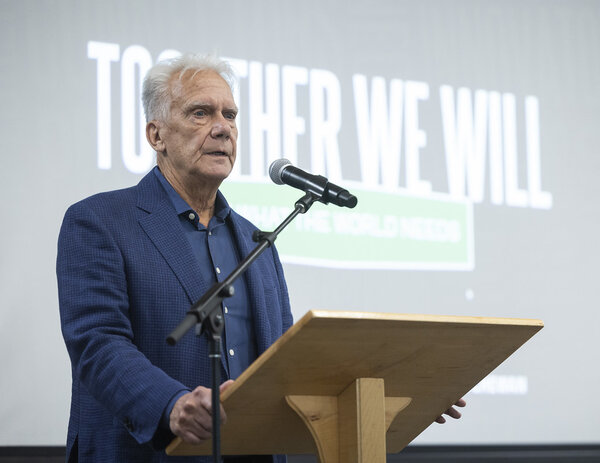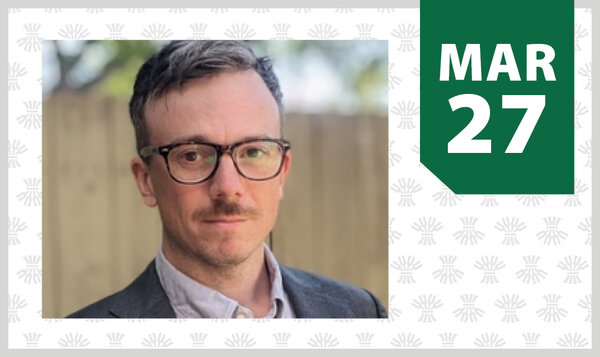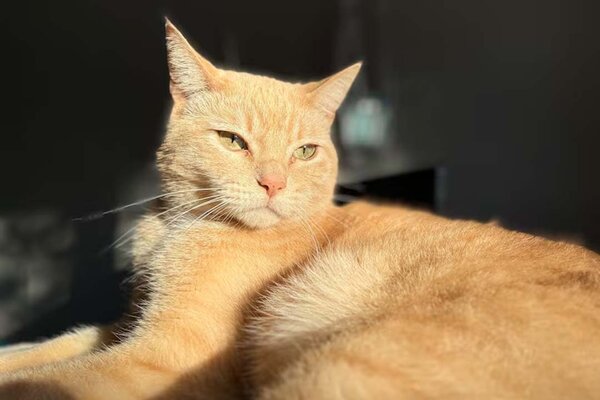
Transgender USask graduate reflects on university experience
Ciel Butler (BMus'20) found support and acceptance at the USask campus when they started a journey of self-discovery
By Kristen McEwen
It wasn’t until the final year of their music education degree that Ciel Butler (BMus’20) realized they were queer.
“I was very much in my adulthood when I got to a point where I realized, ‘Oh maybe I’m queer,’” they said. Butler now identifies as a non-binary trans-masculine person, who uses they/them pronouns.
In their fourth year at the University of Saskatchewan (USask), a friend took Butler to the USSU Pride Centre. Before this visit, they weren’t aware the centre existed in the Memorial Union Building because they spent most of their time in the College of Arts and Science Department of Music, located in the Education Building across campus.
“I went to the centre and immediately met people that would enter my life and stay for the rest of my life. Saskatoon is really small, and the queer community is really small, and pretty much everybody in that Pride Centre ended up becoming friends in my life, which is cool,” Butler said.
“I was confused at first because I didn’t know anything regarding the queer community,” Butler said. “I walked into the centre and when people introduced themselves, they said their name and pronouns.”
The experience resonated with Butler, who hadn’t known about using pronouns like “they/them.”
Butler is from Saskatoon and attended elementary and high school in the Catholic school system. They said they weren’t aware of the queer community, and the school didn’t provide resources or spaces to talk about it. Instead, discussions about the 2SLGBTQQIA+ community were avoided, and students were dissuaded from forming a Gay-Straight Alliance group, Butler recalled.
“It was fully a learning experience for me too because I came from such an outside perspective,” they said.
As Butler learned more about the queer community, and about themselves, they started to make small changes to reflect their non-binary identity. They noted that music department head Dean McNeill—Butler’s mentor and trumpet instructor throughout their degree—accepted that they wanted to start using different pronouns, and eventually a new name entirely.
“I feel very lucky in my position, that I was in my degree,” Butler said. “Like, I guess it’s a benefit of being in a liberal arts degree—people will generally be more understanding and accepting. I wasn’t expecting to be accepted with open arms by the music program.”
During their degree, Butler noticed that faculty in the Department of Music made a concerted effort to include small gestures that have a significant impact, such as using pronouns in class introductions.
When it came time for convocation, Butler had started the process of changing their first name to Ciel. McNeill approached Butler and asked if they wanted their graduation documentation to reflect the name change. Butler graduated with a Bachelor of Music degree (Honours) in 2020.
“He actually came to me to ask me if I wanted that done, which just really showed me how much love and support I had in that small program,” Butler said.
One of the challenges Butler encountered during their transition process was accessing the bathroom while at university. Currently, there are inclusive bathrooms on campus. There is one located in the Education Building, which Butler wasn’t aware of right away.
“Before knowing (the bathroom locations), I went through the struggle every day being like, ‘Do I make myself really dysphoric by using the women’s room, or do I make myself potentially endangered by using the men’s room?’”
Butler’s anxiety over potential confrontation when using the washroom got to the point where they were no longer using washrooms on campus and forcing themselves to hold it. They recommended that information about inclusive washrooms be more publicized and accessible on campus.
“That was definitely a really big struggle that used to really affect me before, when I was visibly transitioning,” Butler said.
For students who may be going through similar situations and learning about themselves, or wanting more information, Butler recommended reaching out to the Pride Centre on campus.
“It’s genuinely a great place that has a lot of resources and people aren’t scary there,” Butler said. “They’re just there to hang out, and everyone who’s in there has found a safe space in that building and they’re using it as a refuge—I started doing that too.
“In my fourth year, I was spending almost every single day there,” they added. “I would walk from the (Education) Building all the way to the Pride Centre, so I could spend my couple of hours in between classes there, just because that was the safe place that I knew about.”
“And if you’re not sure about the queer centre, you can also go to the Women’s Centre, who accepts everybody and they’re right next door. There’s a whole little hallway that I think is the best part of campus.”
While Butler found safe spaces on campus, they noted that USask still has a way to go when it comes to accepting diversity among students.
“(The university) is definitely doing things to make strides and make it easier for students on campus, but there’s lots of stuff that would make it better.”


